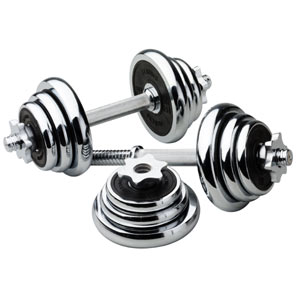
(picture courtesy of wikipedia)
We all know what the function of the heart, and if not I will briefly inform you. This article is an educational tool only, you should always consult with your doctor about using supplements.
The Heart is a muscular organ located to the left of the middle of the chest. It is roughly the size of your fist and helps to deliver blood around your body. Blood carries essential nutrients and oxygen as well as removes wastes from the body ex Carbon Dioxide.
The heart acts as a pump that works in two stages.
Stage 1
The right side of your heart receives blood that is returning from delivering nutrients and oxygen to the rest of your body. The blood is known as deoxygenated blood, this blood returns from the rest of the body and travels to the right side of your heart where the Heart will pump the blood to the lungs in order to become OXYGENATED(oxygen rich).
Stage 2
Once the blood becomes oxygenated it travels back to the heart via the Left Side, and is pumped now to the rest of your body
This cycle then repeats.
Now that you know that, you'll know how important it is to keep the vital organ healthy.
Here are a few supplements for healthy hearts.
Omega-3
Omega 3 Fatty Acids have been discussed on this blog before, you can read up on them in more detail. Omaega 3 Fatty Acids are found in fish and help to reduce lipids found in your blood such as Cholesterol and Trigycerides(which are killers, bad bad bad). Those lipids found in the body will harden around the arteries and will eventually decrease blood flow and increase blood pressure which can ultimately lead to a heart attack. Omega 3 Fatty Acids help decrease the rate of build up of these lipids around the arteries. For those who have high triglyceride levels, should be consuming Omega 3 supplements or fish(which I would recommend more than supplements as they contain other beneficial nutrients)
Sources of Omega 3 - Salmon, Tuna, Mackerel, Eggs labeled Omega 3 rich(chickens fed a diet of greens), Grass Fed Beef or Lamb ir Chicken,
Dosage: A serving of fish twice a week or 1,000 mg daily
Vitamin D
A lack of Vitamin D has been associated to unhealthy hearts, higher diabetes rate, high triglycerides, higher blood pressure, and an increase in cardiovascular risks. Some people don't receive enough of this vitamin because of lack of exposure to sunlight and are deficient of this vitamin.
Dosage: 400 to 800 IU of vitamin D3
Food sources: Dairy products and oily fish like salmon and tuna
Try to get out in the sun, as Vitamin D can be produced by our skin
Niacin(Vit B3)
Niacin helps reduce cholesterol, triglycerides, BAD VLDL(very low density lipoprotein), BAD LDL(Low Density Lipoprotein) and increase GOOD HDL(High Density Lipoproteins)
So to summarize
Niacin
Reduces Bad Cholesterol - VDLD, LDL, & Triglycerides
Increases Good Cholesterol - HDL
Niacin helps to prevent fat being broken down in the body and absorbed into our bloodstream. This prevents fats from entering our bloodstream and hardening over time. It instead increases the good HDL levels in our blood which travel the bloodstream and help remove bad cholesterol from the blood. Niacin also helps to ensure proper functioning of the nervous system, the digestive tract, and the brain.
So Win Win Win
The recommended daily intake of niacin is just a mere 14-16 mg for adult women, 16-20 mg for men, 18 mg/day for pregnant or breast-feeding women.. This small amount can easily be taken from the daily diet. However, those who are deficient (for one reason or another) would need a lot more than just this RDA amount. In the same way, women who are pregnant or breastfeeding slightly need a lot more.
The upper limit for adult men and women is 35 mg/day which is based on flushing as the critical adverse effect, this dose-dependent flushing effect consist of a single episode right after (10 to 20 minutes) niacin is taken.
Foods with Niacin
Niacin is found in variety of foods including liver, chicken, beef, fish, cereal, peanuts and legumes and is also synthesized from tryptophan, which is found in meat, dairy and eggs.
Animal products:
* liver, heart and kidney
* chicken
* beef
* fish: tuna, salmon
* milk
* eggs
Fruits and vegetables:
* avocados
* dates
* tomatoes
* leaf vegetables
* broccoli
* carrots
* sweet potatoes
* asparagus
Seeds:
* nuts
* whole grain products
* legumes
* saltbush seeds
Fungi:
* mushrooms
* brewer's yeast







